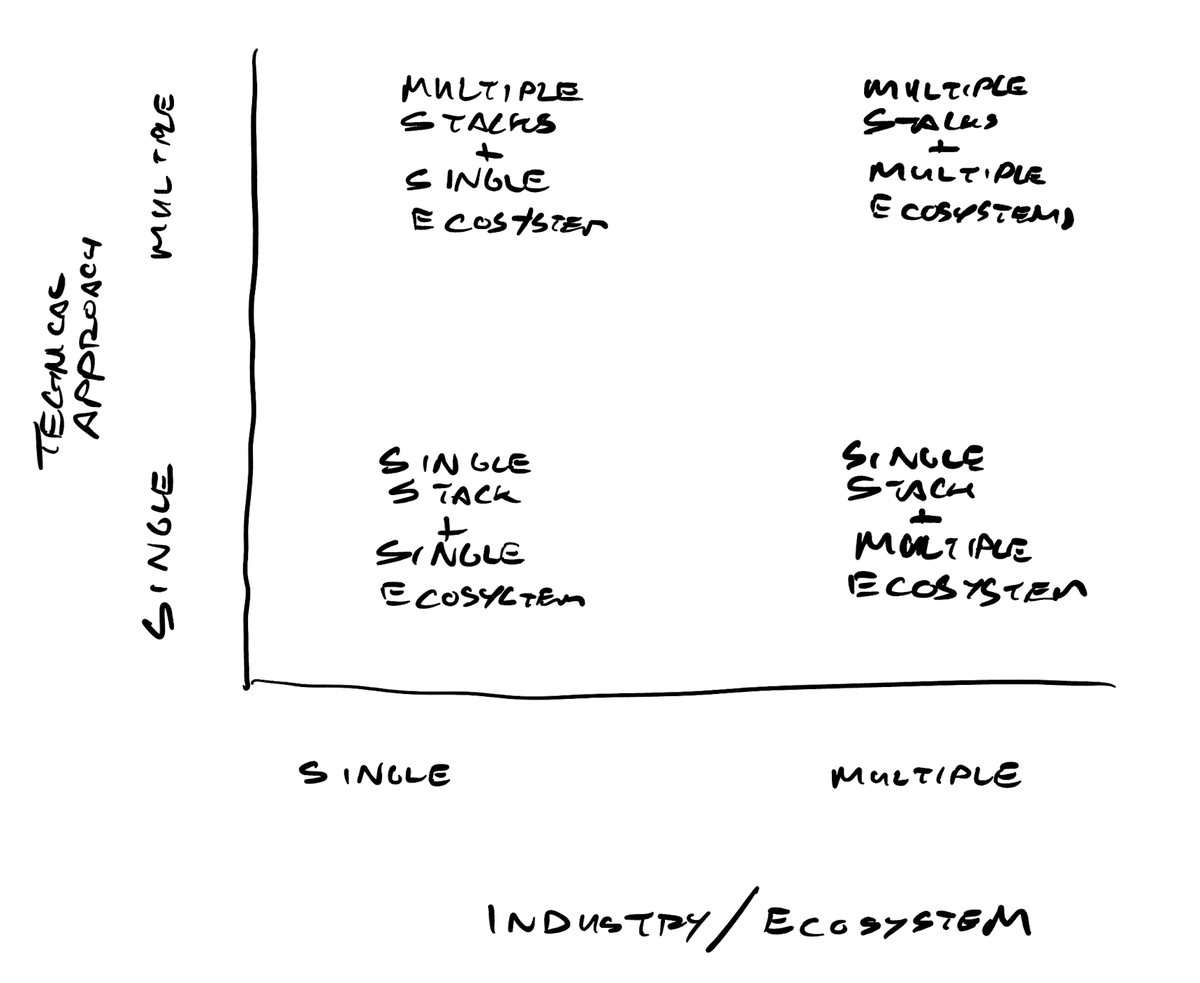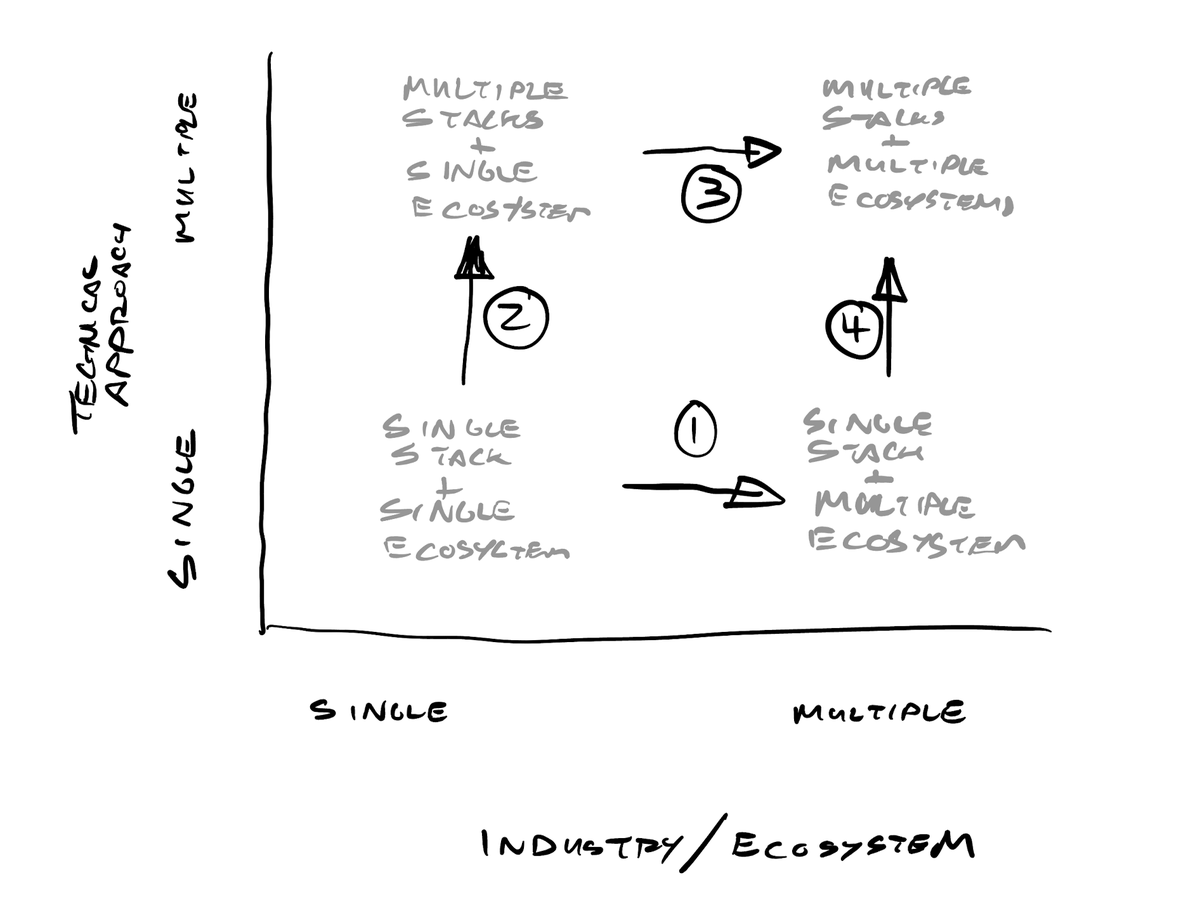
Trust Registries help answer the hard questions an ecosystem needs in order to create a whole experience.
a thread - and maybe some sacred cows are at play...
1/
a thread - and maybe some sacred cows are at play...
1/
Where do the systems you want to work with go to get the answers to questions like
How do I know can trust
- this Issuer for that Credential?
- trust that Verifier?
- that Wallet App?
2/
How do I know can trust
- this Issuer for that Credential?
- trust that Verifier?
- that Wallet App?
2/
hint: that's the Trust Registry Specification v1.0 at the @TrustOverIP Foundation wiki.trustoverip.org/display/HOME/T…
3/
3/
but that was just a start - there are MANY more questions that are just as important. We’re starting the v2.0 of the Trust Registry Protocol Specification to dig in on some of these questions.
4/
4/
questions like...
What credential formats does the ecosystem define?
-- NO - there is no interoperable standard for real-world use of #VerifiableCredentials, so you can't say, "just use W3C Verifiable Credentials".
/5
What credential formats does the ecosystem define?
-- NO - there is no interoperable standard for real-world use of #VerifiableCredentials, so you can't say, "just use W3C Verifiable Credentials".
/5
What DID Methods does the ecosystem support?
and NO - the answer isn't "any DID Method you want" - more on that later
/6
and NO - the answer isn't "any DID Method you want" - more on that later
/6
Where is your governance framework codified?
-- NO -"machine-readable governance" is not it,
but there are nuggets of goodness in there
- more at another time.
/7
-- NO -"machine-readable governance" is not it,
but there are nuggets of goodness in there
- more at another time.
/7
What do the credentials used in the ecosystem look like - what is their schema?
-- if you think JSON-LD is the answer - that's another NO - a hard NO for many reasons - more later in the thread
/8
-- if you think JSON-LD is the answer - that's another NO - a hard NO for many reasons - more later in the thread
/8
How do you support revocation in your ecosystem - if you need it?
most don't - do your homework on that one - i.e. not more later.
/9
most don't - do your homework on that one - i.e. not more later.
/9
How do you do delegation in your ecosystem? Is it baked into your DID Method?
How does someone confirm delegation is still valid (revocation may help - it may not)?
/10
How does someone confirm delegation is still valid (revocation may help - it may not)?
/10
Do you deflect to legal agreement to protect information?
A legal approach is a kick-the-can approach that will work - until it doesn't.
- more later.
/11
A legal approach is a kick-the-can approach that will work - until it doesn't.
- more later.
/11
How does your ecosystem ensure compliance? Do you have a test suite that proves #interoperability?
NB: Another tweetstorm is likely coming on the myth, legend, and realities of interoperability - it's a topic of its own.
/12
NB: Another tweetstorm is likely coming on the myth, legend, and realities of interoperability - it's a topic of its own.
/12
The questions above are being discussed towards the end of this month as we kick off the Trust Registry Protocol Specification vNEXT work. Join us at:
wiki.trustoverip.org/display/HOME/T…
/13
wiki.trustoverip.org/display/HOME/T…
/13
I'm hosting a short webinar to provide the groundings behind that work on 21SEP2022 at 10 am ET: us02web.zoom.us/webinar/regist…
/14
/14
I'll get the link to the recording shared here when it is done. It should show up here, though: us02web.zoom.us/webinar/regist…
/15
/15
Now, on to some of those "more later" items... first at-bat: JSON-LD
/16
/16
SUBTOPIC: JSON-LD is a powerful tool for semantic analysis. It has a few substantial flaws that make it difficult to use in the wild and hard to build into governance frameworks.
But we can compensate.
/17
But we can compensate.
/17
JSON-LD promises that you can discover your schema and don't need to define your schema.
Neither of those ideas (discover schema & define schema later) helps create robust and resilient systems.
/18
Neither of those ideas (discover schema & define schema later) helps create robust and resilient systems.
/18
minor aside: JSON-LD as a schema definition felt wrong, but I couldn't define my concern for a long time. A respected colleague casually pointed out that it mixes syntax and semantics - and that's my issue right there.
/19
/19
back to the JSON-LD line - the feature of "you don't even need to define your credential schema in advance" is not good. It is a recipe for complexity bombs.
/20
/20
If you think JSON-LD is magical because I can ingest data with a schema that I don't know yet, you haven't moved enough critical data across multiple, uncoordinated domains (most good uses cases are complex).
/21
/21
A credential can carry its schema when you use JSON-LD. While powerful, it doesn't help adoption - it makes it complex.
There is a simple solution: put a copy of the schema in a Trust Registry as a reference.
/22
There is a simple solution: put a copy of the schema in a Trust Registry as a reference.
/22
and developers don't want the complexity - when it adds no realizable value.
see: github.com/SmithSamuelM/P…
"JSON Schema Already Won the Adoption Battle"
/23
see: github.com/SmithSamuelM/P…
"JSON Schema Already Won the Adoption Battle"
/23
SUBTOPIC: Legal Agreements - are an easy out for credential exchange -the idea being that you don't need to have systemic privacy if you can point out legal approaches to create compliance.
It isn't a real solution, though.
/24
It isn't a real solution, though.
/24
Kyle den Hartog provided good input on the idea, but his answer that legal agreements solve the problem is flawed.
It misses the incentives at play.
kyledenhartog.com/response-to-an…
/25
It misses the incentives at play.
kyledenhartog.com/response-to-an…
/25
The "it's a legal barrier" argument misses the massive asymmetry in the market.
The COST of not being compliant (fines & reputation impact) appears large, but it isn't.
A Cost-Benefit analysis fails to capture the dynamic.
/26
The COST of not being compliant (fines & reputation impact) appears large, but it isn't.
A Cost-Benefit analysis fails to capture the dynamic.
/26
A COST >>> Benefit concept is wrong because you have a PROBABILITY of getting caught, multiplied by the probability of prosecuting, which nets out to be a vanishingly low number.
Even the smallest benefit is attractive.
/27
Even the smallest benefit is attractive.
/27
Cost <<<< Benefit in reality. A large and public fine that is rare is not a deterrent for many.
/28
/28
The legal agreement answer also misses that presenting too much information is inherently bad as many system actors are not a party to the legal frameworks (or are unenforceable in reality).
/29
/29
Using the over-used driver’s license - showing an address, full name, etc. of a person when it isn't required.
/30
/30
The bad actor - say a bouncer that floats around bars - doesn't have the same scruples. A privacy law violation won't deter the bad actors.
The solution is don't make it technically feasible. Don't overshare.
/31
The solution is don't make it technically feasible. Don't overshare.
/31
SUBTOPIC: DID Methods aren't all the same...
Sure - it should be your choice what DID Methods you want to use, but that statement doesn't stand alone. As a Verifier, I have a choice too.
/32
Sure - it should be your choice what DID Methods you want to use, but that statement doesn't stand alone. As a Verifier, I have a choice too.
/32
DID Methods are not all equivalent. There are a few dimensions to consider:
Popularity/Market Penetration, Structural, and Dogmatic.
/33
Popularity/Market Penetration, Structural, and Dogmatic.
/33
DID Method Popularity/Market Penetration - As the use of DIDs grows, we will likely see a power law distribution with a small number of DID Methods.
/34
/34
Verifiers will not adopt "just any DID.” There is enough variation that this isn't happening and won't for some time. Even a tiny amount of work to "just add this one" is enough to be a blocker - and the work isn't tiny.
/35
/35
Structural - DIDs and DID Documents will continue to evolve and will inevitably diverge. Structural differences in how each method works will create a moving target.
/36
/36
Dogmatic - if your (you/your organization) DID Method is anchored to something radically opposed to my (me/my organization) approach, the technical adoption may be feasible, but social/political support is impossible.
/37
/37
I have likely stepped on a few toes here. For those that I tagged - know this - I have massive respect for you and the hard work you've been doing. I raise these items as unanswered questions with opinions.
/38
/38
I am at a particular place where I am comfortable with them in a "strong opinions loosely held" mode.
/39
/39
In the positive "strong opinions loosely held" approach, which is a leadership mindset that allows us to move forward by making decisions quickly (the strong opinion part), learning and, when needed, change (the loose part).
/40
/40
Somehow, bros have taken it as meaning "I can be a (leader) prick because I hold my opinions strongly" They aren't leaders using a "strong opinions loosely held" approach.
They are just a**holes.
/41
They are just a**holes.
/41
Let's start the discussion and keep being awesome folks!
Cheers,
Darrell
fin
/42
Cheers,
Darrell
fin
/42
• • •
Missing some Tweet in this thread? You can try to
force a refresh





